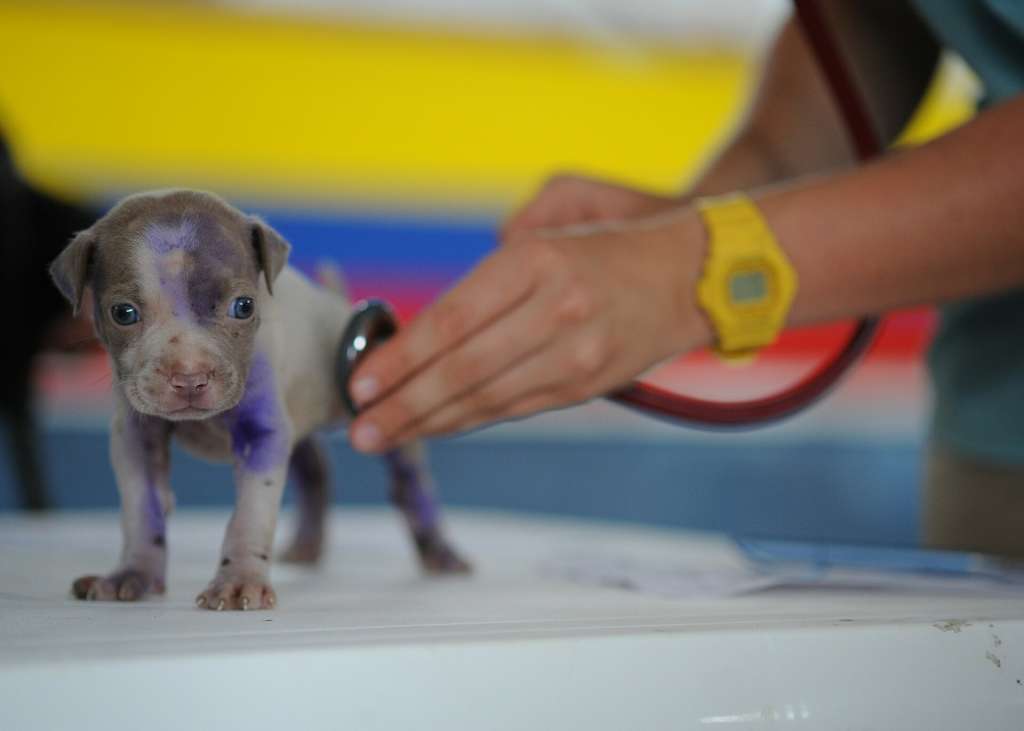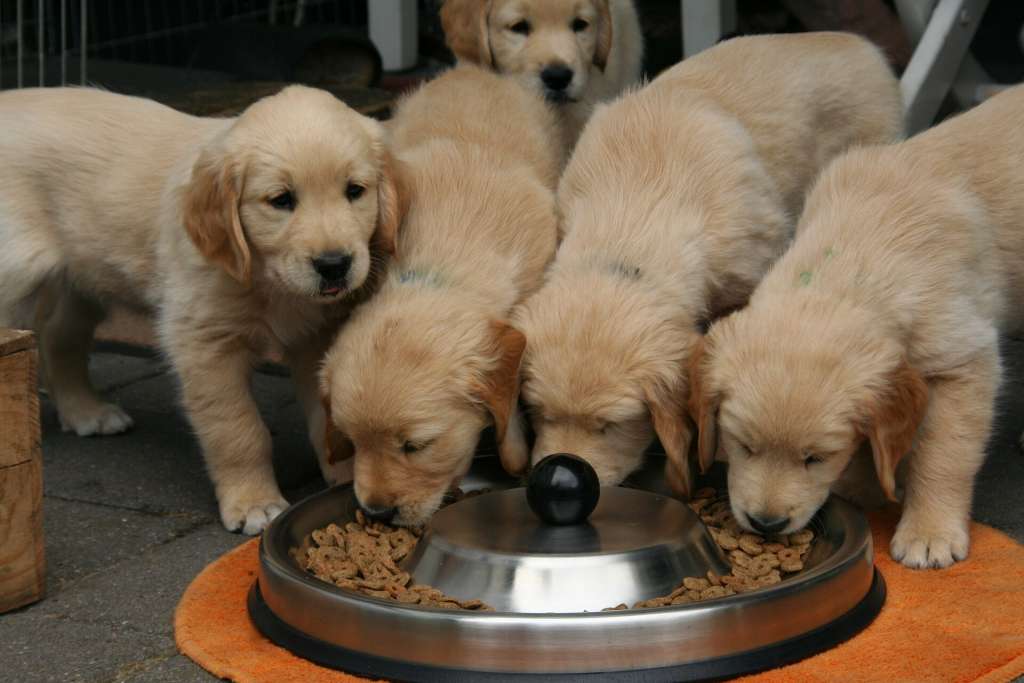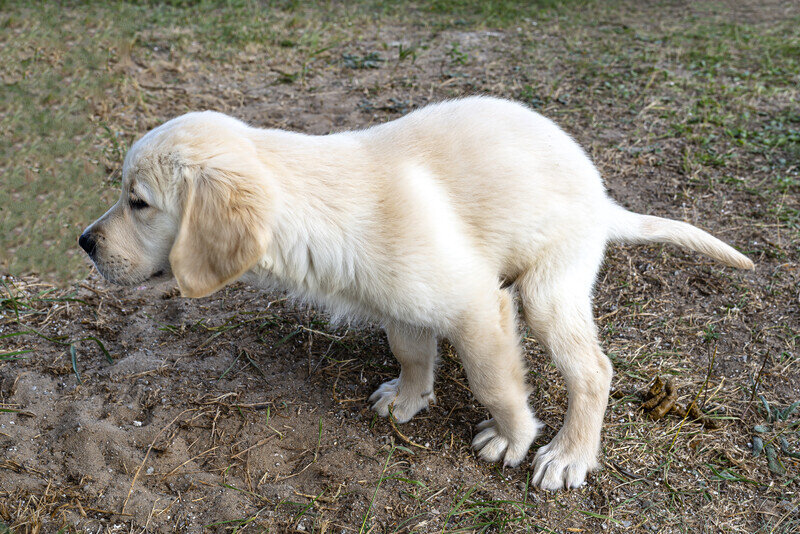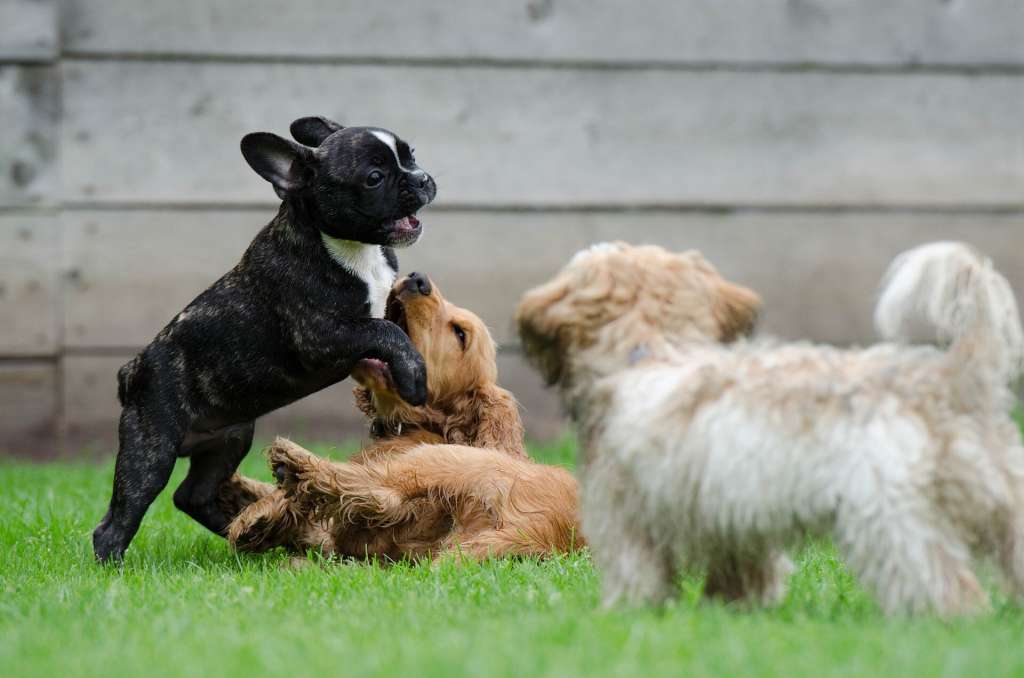How to take care of a puppy, especially during the first 4 months of their life is something every new puppy owner needs to know! Why? Because more than any other period in their lives, the first 4 months is critical in determining their health and mental wellbeing.
Are you thinking of sharing your life with a little being that can bring untold joy to your life? Or do you already share your life with a little bundle of joy called a puppy? Sharing your life with a puppy will transform your life in a way that will astound you! Are you ready for this?
The first 4 months of a puppy’s life is your best chance to instil habits of his or her lifetime and maybe more importantly YOURS! So, to help ensure you can provide exactly what’s needed for the health and happiness of your new best friend I’ve prepared this step by step guide. Please read carefully and implement meticulously. I promise you won’t regret it!
1. How To Choose The Best Vet

You need to find a good vet. How? You can ask your friends or ask for recommendations in your local Facebook groups. You can also look at Google local business reviews before deciding. The purpose of the first visit is a general health check for your bundle of joy. A general check health check is essential to ensure your puppy has no health issues. In addition, this first visit to a vet enables you to prepare a preventative care plan in consultation with the vet. The following care plan checklist will help you to prepare your plan:
- Diet – Recommended food, feeding frequency and portion size
- Vaccinations – Agree a vaccination schedule
- Parasites – Agree a plan for controlling parasites such as lice, ticks, ear mites and worms
- Illness Symptoms – What to look out for
- Spaying/Neutering – Find out when and if you should have this done
2. Only Buy Quality Food Specifically Made For Puppies

Your puppy needs food that contains all the ingredients they need for their rapidly developing bodies. All dog food manufacturers offer specially formulated food for puppies and the dilemma you face will be knowing which one to choose – there are just so many! You can ask your vet or check out puppy food reviews such as this https://www.dogowner.co.uk/Best-Puppy-Food/. Another effective way is to ask for recommendations on Facebook groups – both breed specific and puppy food/diet specific.
You need to make sure that your puppy always has a fresh supply of water and this is especially important if you decide to feed dry kibble.
It’s best to feed little and often throughout the day and this means feeding them as follows:
- Age 6-12 weeks – 4 times per day
- Age 3-6 months – 3 times per day
- Age 6-12 months – 2 times per day
3. Create A Puppy Potty Routine

First and foremost getting your puppy into a toileting routine requires the virtue that we all aspire to and that’s patience. Of equal importance though is love and understanding along with dollops of positive reinforcement. Some people use puppy diapers though people and puppies dislike these for entirely different reasons.
Have you ever seen a baby who seems to have outgrown his diapers? Well failure to create a potty routine and your puppy could be destined to outgrow their diapers too! You have been warned! The best plans of mouse and men can sometimes fail though so it’s as well to plan on the occasional accident and buy some carpet cleaner!
So here are my suggestions for saving money on diapers and saving you and your puppy from the unpleasant aspects of using these devices including environmental pollution!
Use the same outdoor area for your puppy to do his business. Use the same word such as “poo” or “wee” to encourage them and praise them when they have “delivered”! Remember positive reinforcement can be negated by reprimands so avoid chastising them when they have the odd “accident” in your home.
Your puppy will not be able to indicate that they need to relieve themselves although as they get older and you get to know them better you might notice a sign.
In the meantime, it’s best to take them out at certain key times as follows:
- In the morning when you wake.
- At bedtime.
- After eating or drinking.
- When your puppy awakes after taking a nap.
- During and after exercise.
4. Look Out For Illness Symptoms
Contact your vet immediately if you notice any of the following:
- Loss of appetite
- No or negligible weight gain
- Being sick
- Abdomen swollen or tight like a drum
- Low or no energy
- Diarrhoea
- Having difficulty in breathing
- Coughing or wheezing
- Gums look pale
- Eyes swollen, red or producing discharge
- Nasal discharge
- Having difficulty in passing urine or stools
5. Obedience Training

Everyone likes a well behaved, friendly puppy and conversely no one likes a badly behaved, aggressive puppy so it’s vital to train your puppy to have good manners. Teach your puppy good manners and you and your puppy are guaranteed a life of positive social interaction with other dogs and people. You will also forge a strong bond with your puppy along the way!
Teaching your puppy good manners is all about getting them to obey commands. The ability of dogs to remember commands varies from breed to breed. It all depends on their intelligence! All dogs can learn the five basic commands sit, stay, down, come and heel. So make sure that at the very least your puppy learns them.
A great way to train you and your puppy is to attend puppy training classes. This is also a great opportunity for socialising with other people and their puppies. You can attend puppy training classes when your puppy is 4 months and has had all their vaccinations.
Bear in mind that any training including puppy training classes should be a fun activity for your puppy. To that end you should always use positive reinforcement so recognition such as “good boy” and reward in the form of treats are always the order of the day and NEVER punishment when sometimes your puppy gets it wrong.
Want to know how much exercise your new puppy needs for their mental and physical health? Find out here https://k9time.co.uk/how-much-exercise-does-a-puppy-need-to-be-healthy/.
Whether you’re a puppy buyer or breeder you’ll find this free puppy toolkit useful!
